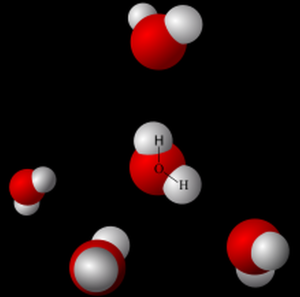“Dihydrogen monoxide is the cause of deaths for countless people by drowning, electrocution, bodily trauma, and infection, among others,” declared a recent report by Human Rights Watch.
 Iata, near Hebron, December 21 – Every winter, Sami Abu Jizz knows he must withstand a new onslaught of a chemical that Israel lets flow into his village in tremendous quantities, a substance linked to hundreds of thousands of deaths every year: dihydrogen monoxide (H2O).
Iata, near Hebron, December 21 – Every winter, Sami Abu Jizz knows he must withstand a new onslaught of a chemical that Israel lets flow into his village in tremendous quantities, a substance linked to hundreds of thousands of deaths every year: dihydrogen monoxide (H2O).
Abu Jizz, a father of six, follows the same routine as the season approaches: seal the roof of the house, lest any of the stuff seep in and erode the structure; clear the drains, lest it accumulate, both attracting harmful pathogens and posing a physical hazard; ensure his family is equipped with protective gear to minimize its contact with their skin and clothing; and keep the car’s windshield-clearing blades in working order to prevent the chemical from impairing visibility and road safety. The 44-year-old construction worker does not know when the substance was first allowed to stream through Iata’s streets and yards, but he does not recall a time when Israel did anything to prevent it.
“The Israeli occupation of this area began before I was born,” he noted, referring to an event in 1967, four years before his birth. “I know that even when I was little, there was already an established routine of protecting ourselves from the chemical.” He recalled the way his mother would make sure to set aside a cloth at the entrance to the family home, to catch any of the substance that dripped from the feet of anyone who had been in contact with it, lest it be tracked into the house.
Abu Jizz is hardly alone. Dihydrogen monoxide flows through every Palestinian town, sometimes in torrents, causing damage and threatening lives. While Israel lets it stream in only on especially cloudy days, the chemical forms puddles, makes roads muddy, and erodes soil. Under certain conditions, it hardens to a smooth, slippery state that dramatically increases the danger of slipping, skidding, and consequent bodily harm.
Statistics are unavailable regarding the number of Palestinians injured or otherwise harmed by dihydrogen monoxide annually, but the Ministry of Health in Ramallah issues yearly guidelines to help citizens cope with the vast quantities of the substance that they encounter during the winter, a testament to the scale of the recognized danger.
Human rights organizations call the Israeli policy a war crime. “Dihydrogen monoxide is the cause of deaths for countless people by drowning, electrocution, bodily trauma, and infection, among others,” declared a recent report by Human Rights Watch. “Israel’s wanton disregard for Palestinian welfare, as demonstrated by allowing the chemical to flow through Palestinian streets, playgrounds, and yards, must be investigated and punished by the international community.”
A spokesman for the Civil Administration, the Israeli military body that governs Palestinian areas, declined to comment, citing the office’s intense preparations for the bombing of Agrabah.
Please support our work through Patreon.




